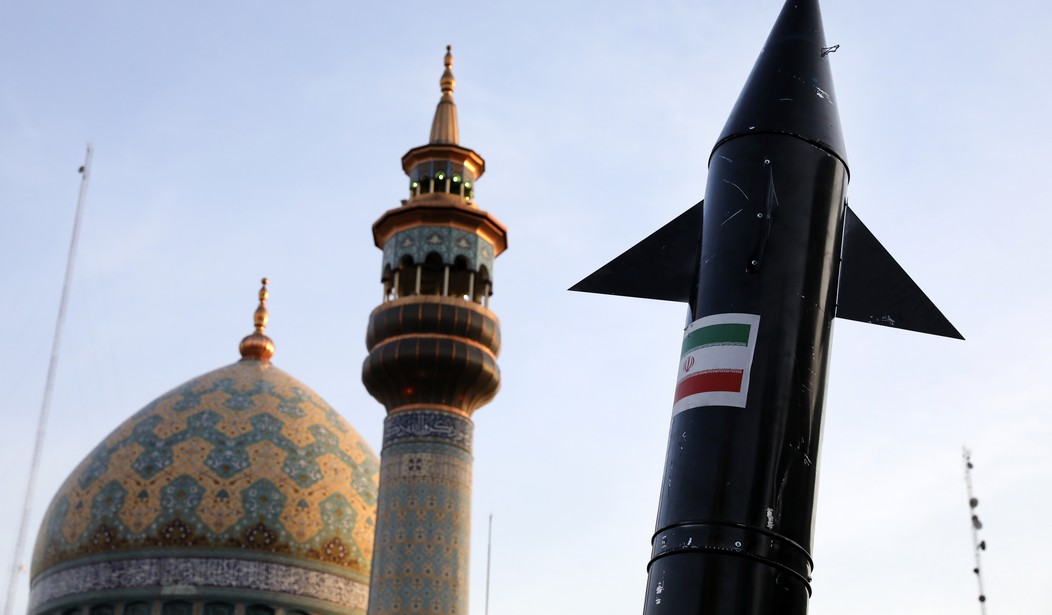Following Israel's strike on Iran on October 26, there was a restrained reaction from Tehran. Sources in the government claimed the strikes caused little damage. But the strikes against Iran's air defense installations and at least three sites associated with missile production appear to have strengthened hardliners and put them in the driver's seat.
In truth, "hardliners" in Iran is a relative term. But Iran is riven by factions, and has been since its formation in 1980. Some factions want to take a more aggressive stance against Israel, while some want to let Tehran's proxies fight their war. The goal of destroying Israel is universal. How Iran does that is the issue.
At the moment, it would appear the hardliners who want Iran to take a more aggressive posture in the conflict appear to have won the day.
“We will give an unimaginable response to the enemy,” Gen. Hossein Salami, the head of Iran’s Islamic Revolutionary Guard Corps, said Thursday.
Iranian Supreme Leader Ayatollah Ali Khamenei weighed in Saturday, saying, “The enemies, both the U.S. and the Zionist regime, should know that they will definitely receive a tooth-breaking response to what they are doing against Iran and the resistance front.”
Meanwhile, the U.S. is expecting a big response from Iran, and is positioning assets in the case of an attack that spills over and targets Americans. The Pentagon announced that it's sending more U.S. ballistic missile defense destroyers, fighter squadrons, and tanker aircraft, as well as B-52 long-range strike bombers to the Middle East. “Should Iran, its partners, or its proxies use this moment to target American personnel or interests in the region, the United States will take every measure necessary to defend our people,” the Pentagon statement said.
Should Iran fail to respond it would lose face both among allies fighting Israel and among its supporters at home, according to Mohanad Hage Ali, a deputy director at the Malcolm H. Kerr Carnegie Middle East Center, a research institute in Beirut. That is creating increasingly tough rhetoric among Iranian officials over a response.
“The number of casualties—four soldiers—and the destruction caused by the strike probably was too big for them to swallow,” he said. The regime would rather respond than stop, but “given their vulnerabilities, that’s a massive risk,” he added.
Israel’s Oct. 26 attack exposed the vulnerability of Iran’s air defenses, and the Israeli military now claims to be able to fly freely in Iranian airspace.
The hardline faction is pushing the civilian government to inflict the kind of damage that Israel has on Iran. The problem is that Iran doesn't have an air force or other assets that can penetrate Israel's air defenses, and must rely on its valuable ballistic missiles or drones launched by proxies to do the job of directly attacking the Jewish state.
In an article titled "Killing the Dog," the Agaah daily, a newspaper closely associated with the Revolutionary Guards, says that Iran must intensify its attacks or lose credibility. "Attacks on the interests of the Zionist regime worldwide guarantee the security of the region."
The report featured images of Israel’s political and military leaders alongside suggested targets, including military and economic centres.
This is not the first instance of Agaah has advocated direct action against Israel. Last month, the daily released a list of sites that could potentially be targeted by Hezbollah’s missiles and drones. The list included food factories, power facilities, technology plants and chemical production sites.
Moreover, the Dimona nuclear plant was identified as a target for Hezbollah, reportedly within range of Iran’s Fateh-110 missiles.
So far, Israel has avoided attacking Iran's nuclear plants or sites associated with their nuclear program. An attack on Dimona would make attacks on Fordow, Arak, and other Iranian nuclear infrastructure far more likely. I doubt whether Iran wants to play a tit-for-tat game with Israel's nuclear facilities.
To date, blood-curdling threats from Khamenei to break the teeth of their enemies haven't exactly panned out into the kind of attacks that would do much harm to Israel. The fear is that with both sides playing the escalation game, no one knows if either side will be able to stop before full-scale war breaks out.










